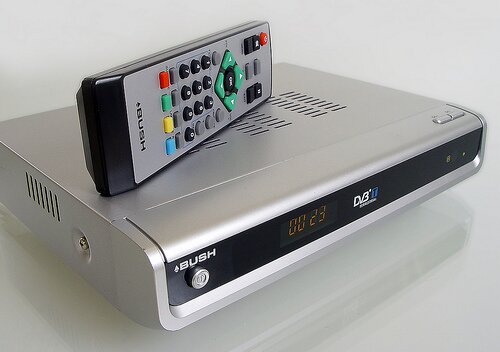
CC image courtesy of Mr F.M, on Flickr.
South African broadcasters and business associations have spoken out against the government’s decision to install a control system on all set-top boxes (STBs) in the forthcoming digital migration, questioning the decision’s legality and saying it places an “extra burden on consumers”.
HumanIPO reported last month communications minister Yunus Carrim announced a conditional access system will be installed on all set-top boxes for the digital migration, with this decision incorporated in draft amendments to the Broadcasting Digital Migration Policy published by the Department of Communications (DoC).
The South African Broadcasting Corporation (SABC), MultiChoice, the National Association of Manufacturers in Electronics Components (NAMEC), and the Association of Community TV in South Africa (ACTSA) have hit out at the decision and the draft regulations, suggesting they directly contravene a High Court ruling stating the DoC has no power to make binding decisions regarding control systems of set-top boxes.
The group draws attention to the High Court ruling in the case brought against former communications minister Dina Pule by e.tv, in which the court held the minister “has no power in law to prescribe or make binding decisions relating to the STB control system” and “does not have the power to prescribe to FTA broadcasters how they should manage STBs”.
The group thus says the current decision by Carrim contained in the draft regulations is not lawful, and the suggestion is that a further legal case may be occasioned by the dispute.
“No person is above the law and we hope the minister will ultimately act in accordance with the decision of the court, rather than inviting unnecessary litigation that will continue to delay the migration from analogue to digital” said Calvo Mawela, MultiChoice group head of stakeholder and regulatory affairs.
“The continuing impulse on the issue of STB control present a huge problem to our members and has the potential to destroy the many businesses that have been set up to take advantage of the migration from an analogue broadcasting system to a digital system. NAMEC at various forums has pronounced its objection to the inclusion of Conditional Access and Encryption in the STBs. This position has been strengthened further by the court judgement in the ETV vs. Minister of Communications,” said Keith Thabo, president of NAMEC.
“As NAMEC we strongly object to the draft policy amendment in its entirety, as it contravenes the court decision. It is our view that the minister runs the risk of being in contempt of court in our reading of the draft policy,” he said.
“We urge the minister to withdraw the draft policy in its entirety and call on him to desist from making amendments that make pronouncements on STB control. This is because the court is clear that such a pronouncement does not fall within his competency and should be left to free to air broadcasters to decide.”
The SABC said that in line with its mandate to provide access to its services to all South African citizens in accordance with Universal Access, the proposed set-top box control system will hinder this mandate and drive up costs for the consumer given the potential need for multiple set-top boxes caused by the encryption installed on conditional access set top boxes, which will preclude the reception of free-to-air channels.
According to the SABC, the proposed conditional access system contained in the draft regulations would place an “extra burden on consumers”.
“The voice of the majority of broadcasters who are legally entitled to make a decision on this matter have not been heard. Many interested parties opposed the inclusion of STB control or encryption mechanism in STB specifications,” said Collin Mackenzie of ACTSA.
“To have control on set top boxes will not be in the interest of public service broadcasting in the country and instead it would favour only commercial free to air broadcasters.”
Carrim responded to the criticisms, saying the DoC had consulted lawyers who had made it clear the government had the right to make policy on set-top box control, but that it could not prescribe the supplier, the operator of the control system, the type of system used or how it should be managed.
“We have not made a decision about the management of a control system,” he said. “Nor do we refer at all to conditional access or encryption as methods of implementing STB control. We are saying that broadcasters are free to decide whether they want to use control or not. There is no compulsion. So we can’t see how we are going against the court order.”
Carrim also said it was “regrettable” the SABC as a public broadcaster was “siding with commercial entities and taking this approach instead of engaging with the representatives of its shareholder”.

















